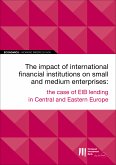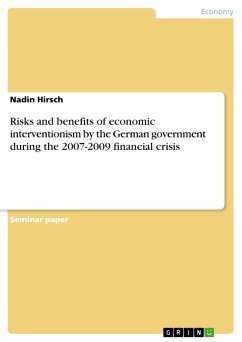This year, the Vienna Initiative marks its 10th anniversary. For this special occasion, the Steering Committee has prepared a commemorative book, with essays and contributions from the key actors and institutions instrumental to the work of the Vienna Initiative since its inception. This volume provides a unique window on the Vienna Initiative's innovative crisis mitigation activities, its subsequent evolution and its current scope. At the time of the Lehman crisis, international institutions, national authorities and international commercial banks collaborated closely, taking full responsibility for their strategies in the CESEE region and voluntarily providing firm commitments on their activities. In the form of the Vienna Inititive, they built a functioning coordination platform, capable of transforming and evolving according to changing needs. Ten years later, this coordination platform remains an important of effective inter-institutional and private-private sector cooperation. The establishment of the Vienna Initiative was far from easy. However, given the size of euro area banks' cross-border operations in CESEE, a disorderly deleveraging would have been very costly for both CESEE countries and the foreign banks. With this in mind, the main stakeholders eventually got together to participate in the Vienna Initiative and achieve its main objective. The foreign banking groups committed to maintain their presence in the region, while the EIB, EBRD and the World Bank Group provided substantial financing to banks and the real economy. These efforts had a major positive impact on the region. They helped curb liquidity disruptions and restore confidence in the banking system, while alleviating balance of payments pressures. This coordinated response from commercial banks and IFIs was a prerequisite for the success of the IMF-funded macroeconomic adjustment programs in several CESEE countries. Over time, the Vienna Initiative has transformed itself from a crisis mitigation instrument to a broader coordination platform, dealing with the unique challenges of widespread cross-border banking with regulatory and supervisory interdependence, while supporting the emergence of an efficient, deep and sound banking and financial sector that supports growth in the region. In particular, with CESEE countries on a solid recovery path, the focus has shifted to tackling the legacy problem of high NPLs, or to dealing with the impact of the EU's upgraded institutional framework - particularly the creation of the Banking Union - on the host countries, most of which do not participate in the Banking Union. With the region needing to transform, up-scale its innovation capabilities and adjust to technological change, a dedicated working group has been set up to propose measures that could improve access to finance for innovative firms which typically lack tangible assets and thus may have hard time obtaining standard bank loans in a system that still offers limited alternatives. The Vienna Initiative has been a major achievement of international coordination and an important instrument for the future of the CESEE region.
Dieser Download kann aus rechtlichen Gründen nur mit Rechnungsadresse in A, B, BG, CY, CZ, D, DK, EW, E, FIN, F, GR, H, IRL, I, LT, L, LR, M, NL, PL, P, R, S, SLO, SK ausgeliefert werden.









